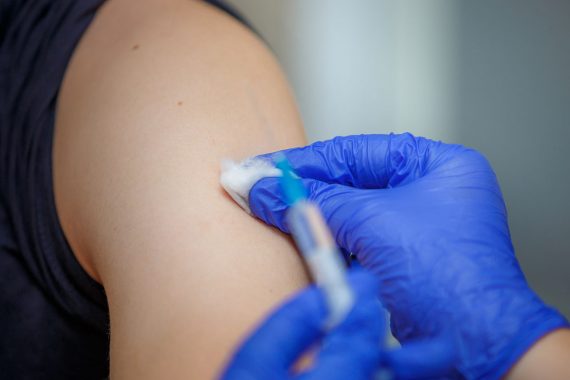MHRA updates Pfizer and Moderna vaccine information over rare heart inflammation

The UK regulator has updated safety warnings for Pfizer and Moderna vaccines after ‘extremely rare’ reports of myocarditis and pericarditis.
In its latest drug safety bulletin, the Medicines and Healthcare products Regulatory Agency (MHRA) said it had revised the information on the vaccines for healthcare professionals and the public after a thorough review of cases.
The regulator’s Commission on Human Medicines committee concluded that health professionals should be alert to signs and symptoms of myocarditis and pericarditis, with those vaccinated told to seek immediate medical attention if they experience chest pain, shortness of breath or arrhythmia.
Up to 23 June, the MHRA had received 60 Yellow Card reports of myocarditis and 42 of pericarditis after Pfizer vaccination, as well one viral pericarditis and one streptococcal endocarditis. For Moderna there have been five reports of myocarditis and two of pericarditis, the regulator said.
Cases occurred most frequently in young men and after the second dose, but were usually mild, and patients recovered in a short time.
It follows similar warnings from US regulators who moved up update safety leaflets after more than 1,000 reports through their adverse event reporting scheme.
At the time the MHRA said they were aware of international reports and were monitoring the situation closely.
In the drug safety Update for July, the MHRA said: ‘The Covid-19 vaccines remain highly effective in protecting people from Covid-19 and have already saved thousands of lives.
‘These events are extremely rare and tend to be mild when they do occur. Our advice remains that the benefits of getting vaccinated outweigh the risks in the majority of people.
‘It is still vitally important that people come forward for their first and second vaccination when invited to do so, unless advised otherwise.’
Pulse July survey
Take our July 2025 survey to potentially win £1.000 worth of tokens

Visit Pulse Reference for details on 140 symptoms, including easily searchable symptoms and categories, offering you a free platform to check symptoms and receive potential diagnoses during consultations.










